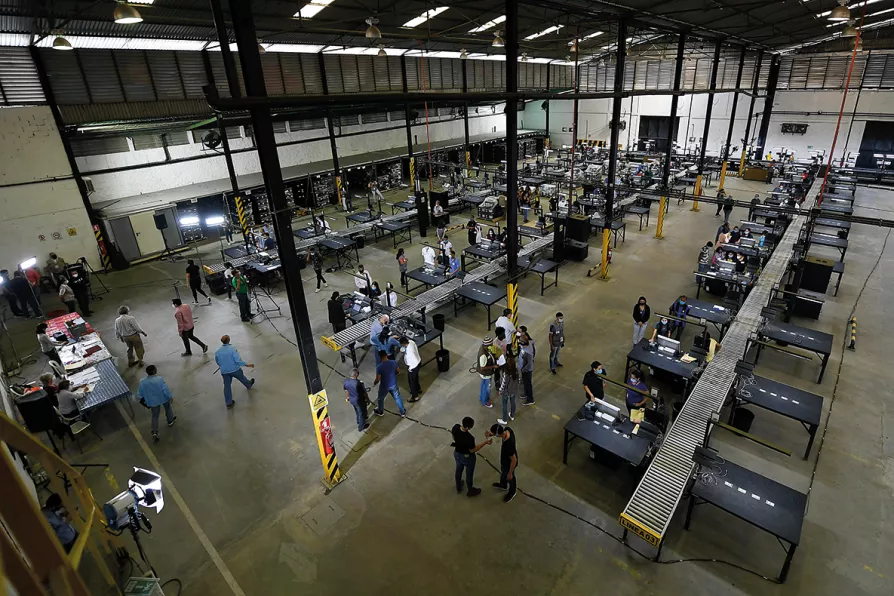
 SCRUTINISED: Members of the Venezuelan Electoral Council test voting machines at a warehouse in Caracas before mid-term elections on December 6
SCRUTINISED: Members of the Venezuelan Electoral Council test voting machines at a warehouse in Caracas before mid-term elections on December 6
VENEZUELA goes to the polls in less than two weeks’ time amid concerns about both possible sabotage of the process and efforts by the US and its allies to delegitimise the outcome.
The elections for the National Assembly on December 6 are for 277 parliamentary seats for a five-year term that begins on January 5 2021. More than 20 million citizens will be able to cast their vote.
A number of US-backed right-wing opposition parties, urged on by self-proclaimed “interim president’’ Juan Guaido, have decided not to take part in the elections and have called for a boycott.

International solidarity can ensure that Trump and his machine cannot prevail without a level of political and economic cost that he will not want to pay, argues CLAUDIA WEBBE

The global left must be unwavering in it is support for Venezuela as Washington increases its aggression, and clear-eyed about the West’s cynical motives for targeting it, says CLAUDIA WEBBE

The US is desperate to stop Honduras’s process of social and democratic change, writes TIM YOUNG











